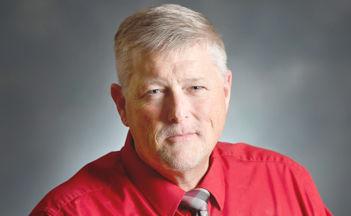|
Chip Minemyer | New report shows church response to abuse remains inconsistent, insufficient
By Chip Minemyer
Many Roman Catholic dioceses are now releasing the names of priests who have had credible allegations of child sexual abuse brought against them. That’s the good news. The bad news is that those lists are often “inconsistent, incomplete and omit key details,” according to a report out this week from ProPublica, a nonprofit watchdog news agency, and the Houston Chronicle. Reporters Lexi Churchill, Ellis Simani and Topher Sanders pulled together 178 lists from U.S. dioceses and religious orders that represent the postings as of Jan. 20. They created a searchable database “that allows users to look up clergy members by name, diocese or parish.” The journalists called their report “the first comprehensive picture of the information released publicly by bishops around the country.” The availability of information, the reporters wrote, is “no coincidence” – the direct result of extensive investigations here in Pennsylvania, namely the 2016 report of abuse across the Altoona-Johnstown Roman Catholic Diocese and the 2018 grand jury report of abuse in six other commonwealth dioceses. The reporters wrote: “Over the last year and a half, the majority of U.S. dioceses, as well as nearly two dozen religious orders, have released lists of abusers currently or formerly in their ranks. ... Nationwide, the names of more than 5,800 clergy members have been released so far, representing the most comprehensive step toward transparency yet by a Catholic Church dogged by its long history of denying and burying abuse by priests. “But even as bishops have dedicated these lists to abuse victims and depicted the disclosures as a public acknowledgement of victims’ suffering, it has become clear that numerous alleged abusers have been omitted and that there is no standard for determining who each diocese considers credibly accused.” The ProPublica/Houston Chronicle story notes that the U.S. Conference of Catholic Bishops “has issued no instructions on disclosures related to credibly accused priests, leaving individual dioceses and religious orders to decide for themselves how much or how little to publish.” For example, when using their searchable database – “Credibly Accused” – to access information pertaining to “Diocese of Altoona-Johnstown, Pennsylvania,” you encounter 35 names of priests that have been made public since May 2016. By comparison, the grand jury 2016 report into abuse in Altoona-Johnstown parishes over numerous decades named 50 priests or religious leaders within the diocese who had been involved in what the report characterized as “a dark and disturbing history” of child sexual abuse incidents that were covered up by religious leaders. The grand jury provided thorough assignment histories for 35 priests, many of whom criss-crossed the eight-county diocese that includes Cambria and Somerset. Nine of the 35 individuals profiled extensively in the 2016 grand jury report do not appear in the new ProPublica database. There are nine priests who appear in the ProPublica database but not in the grand jury report. The Altoona-Johnstown diocese released a list of accused priests in 2016 that included 27 names, and has added to that list since – including several names in 2019. “This is a working document, and we will add to it,” diocese spokesman Tony DeGol said in 2016. There are significant discrepancies when comparing the amount of information listed in the grand jury report vs. the ProPublica database. The database lists the priests alphabetically, with their names followed by a brief description of the nature of the credible allegations for each. Beyond that, the database says “not reported” under each priest’s name for birth years, ordination years and assignment history – at least for those in the Altoona-Johnstown diocese. However, much of that information was explored extensively in the grand jury report, except when a date of death was noted as “unknown.” The ProPublica/Houston Chronicle reporters wrote: “It has become clear that numerous alleged abusers have been omitted and that there is no standard for determining who each diocese considers credibly accused.” Their story credits Josh Shapiro, Pennsylvania’s attorney general, for the 2018 report that alleged that more than 300 religious leaders in six of the state’s dioceses had abused more than 1,000 children in their parishes. The Altoona-Johnstown report opened the door for the extensive follow-up investigation that brought the 2018 document, which in turn paved the way for an increase in reports by dioceses across the country. The ProPublica/Houston Chronicle report takes the issue a step further by providing a national database that individuals can search to see which priests are connected with credible allegations – as determined by each diocese. That distinction is problematic, and information disclosed is incomplete and wildly inconsistent – which means we still have a long way to go in the mission of dragging this tragic issue out of the shadows and into the sunlight. Contact: cminemyer@tribdem.com
|
.
Any original material on these pages is copyright © BishopAccountability.org 2004. Reproduce freely with attribution.
